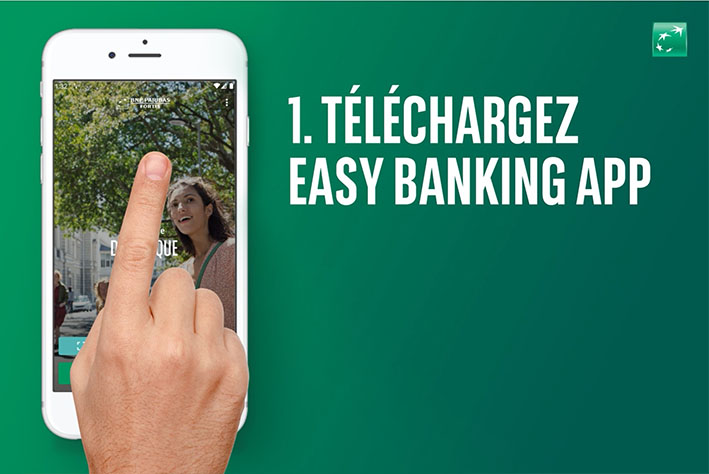
Securing your business data

Beware of cybercriminals
Phishing, identity theft, data theft, malware, ransomware, and social engineering... Fraudsters are constantly inventing new, increasingly realistic and sophisticated techniques.
A moment of inattention on your part or that of one of your collaborators can have serious consequences. We have tips to help you secure your business's data and avoid traps.
A strong password
The longer, more surprising, and complex your passwords are, the harder they will be to decrypt:
- Combine all types of keyboard characters: uppercase and lowercase letters, numbers, and special characters
- Use long phrases instead of a single word
- Only use impersonal data (so, not your birthday or the name of your business, spouse, or child)
- Avoid logical keyboard sequences: hackers will definitely try this method (so, not 12345 or azerty)
- Invent a non-existent word: hackers test all dictionary words using software, even the most exotic terms can be hacked
A password manager
Use a unique password for each of your applications (private or professional). In this way, if a hacker discovers one of your passwords, they won't be able to access all your other applications.
To generate unique passwords for each app and website, use a password manager. No need to remember them all: your "password manager" centralises them, and you only need one password to access them. Practical and secure!
An additional lock
In addition to your password (something you know), add, depending on your device's features, security with your fingerprint or facial recognition (a unique biological identification characteristic) and/or activate your device's lock (something you possess).
This principle is known as two-factor authentication. It’s an additional lock to enhance the security of your business data.
Secure your devices
Your digital devices know more about you than you think. As for hackers, they don't lack ingenuity. Make sure your business's secrets don't fall into the wrong hands: protect your devices, and those of your staff.
Activate device lock
Whether it's a smartphone, tablet, or computer, make sure to activate device lock (using a code, fingerprint, or facial recognition, depending on the device's features).
Update your system
Most updates include security updates. This is why it's essential to update your operating systems and applications as soon as updates are available.
Download from official stores
Some applications contain malware. Be cautious when downloading applications and only do so from official online stores (App Store, Google Play). Never click on a link to download or update an application.
Use a known and secure Wi-Fi
Connecting to a public Wi-Fi network poses risks. When on the move, it's better to use your smartphone's "Wi-Fi hotspot" or limit the connection duration to a minimum (e.g. synchronise your mailbox and disconnect from the public/shared Wi-Fi network). At the office and at home, don't forget to change your modem's original password and never let strangers connect to your network.
Install an antivirus or anti-malware
To avoid malware (software installed fraudulently on a computer to breach its security) and ransomware (malicious software that takes personal data hostage), you can install an antivirus or anti-malware programme on your business's computers. Also, regularly check your USB keys using an antivirus.
How can you avoid fraud and phishing?
Suspicious emails, links to fake websites, scams on social media... fraud and phishing attempts are everywhere. To avoid online traps and secure your data, vigilance is essential. Test your knowledge and that of your team, and discover our tips and videos to learn how to recognise scams and know how to react in case of fraud.
What to do if you suspect fraud?
Take precautions
Have you lost your bank card, Isabel SmartCard or smartphone, or do you think your data has been stolen?
In case of suspected fraud related to banking (cards, Easy Banking Web or Easy Banking App), certain steps can help limit hackers' actions. You can contact the Easy Banking Centre, block your card, delete your device via your app and/or change your password.
Trust Safeonweb
Did you receive a message from a supplier or official instance urging you to click on a link and then log in to your "online banking"? Send the email, SMS screenshot, etc. to suspect@safeonweb.be.
Tip: download the Safeonweb app developed by the Belgian Cyber Security Centre. In addition to giving you tips, this app alerts you to online threats and scams.
Learn more
The Cyber Security Coalition
Several tools allow you to protect yourself, your business, and your staff against online fraud. For example, the Cyber Security Coalition, an official website to combat cybercrime, offers you support by testing your infrastructure and providing free kits and guides to maximise your business's security.
Our guarantees for your online security
-

Your online banking in complete security
Easy Banking App, Easy Banking Web, Easy Banking Business, Isabel... Discover how to manage your business's banking easily and securely.
-

Outsmarting fraud traps
Fake invoices, phishing, ransomware... Learn to recognise the traps and protect your business against fraud.



















